Navigating Patient Death Notifications as a Spiritual Care Worker


Navigating death notifications as a spiritual care worker requires a profound understanding of compassionate communication, cultural sensitivities, and holistic support strategies. This article explores best practices, resources, and the essential role of spiritual professionals in ensuring respectful, meaningful end-of-life conversations that honor the spiritual and emotional needs of individuals and their families.
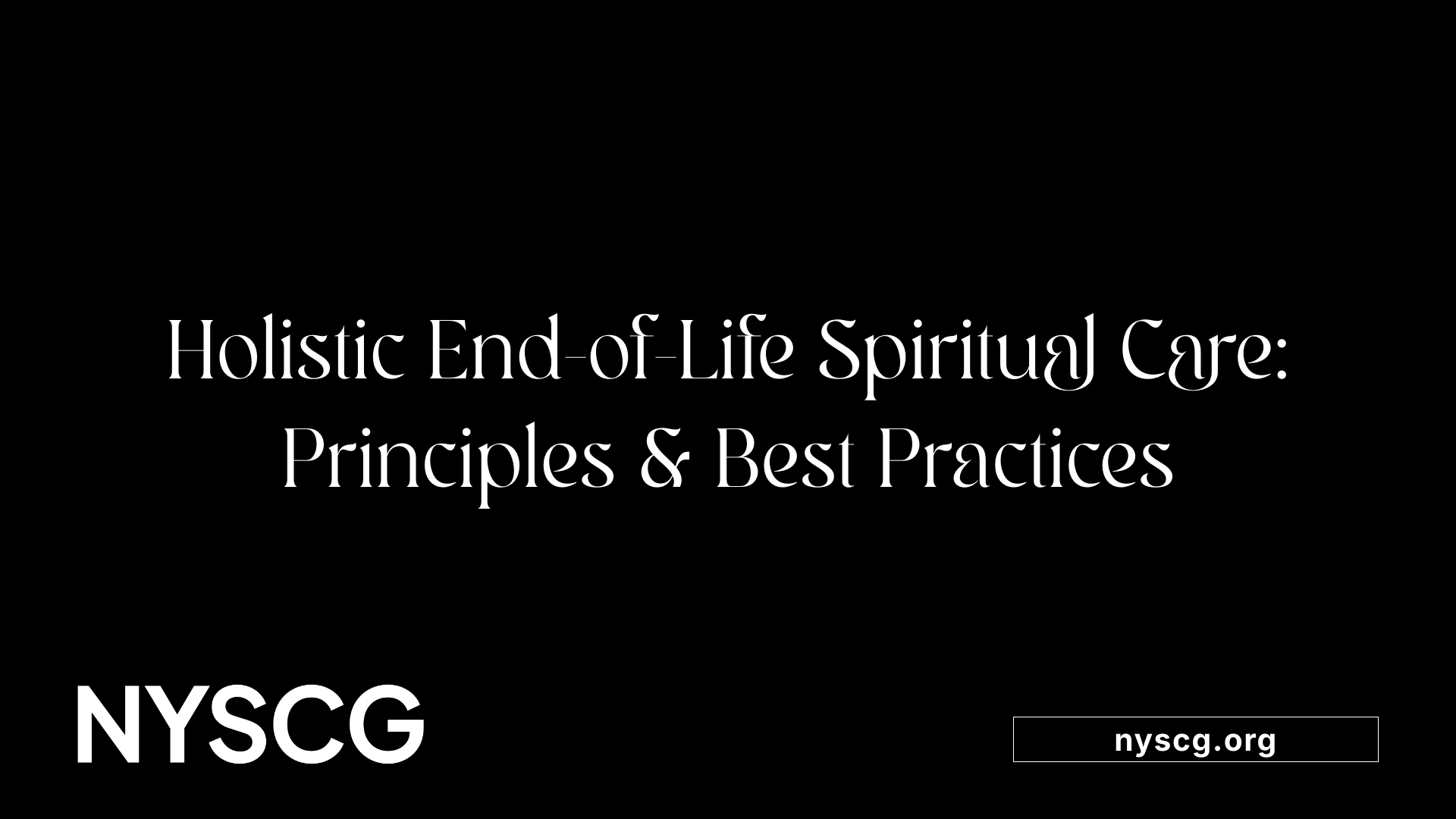
Providing effective spiritual care during end-of-life situations involves several foundational practices that support both patients and their families. One of the first steps is conducting thorough spiritual assessments. These assessments help healthcare providers understand the patient's unique beliefs, values, and spiritual needs, ensuring that the care is personalized and respects individual differences.
Respect for individual beliefs and values is essential. Spirituality can encompass religious practices, personal philosophies, or other sources of meaning such as nature, art, or meditation. Care providers should honor these diverse expressions, avoiding assumptions about what constitutes spirituality for each person.
Offering presence and active listening plays a vital role. Simple acts of being present, listening fully, and validating feelings create a safe environment for exploring existential questions, fears, and hopes. Creating such safe spaces allows patients to process their thoughts about life, death, and what may come after.
Facilitating religious rituals and connecting patients with faith resources can provide comfort and familiarity. These may involve prayer, reading scriptures, or assisting with religious rites, according to the patient's preferences. Collaboration with chaplains and other spiritual professionals enhances this support, ensuring that spiritual needs are met by qualified individuals who respect diverse traditions.
Interventions must be flexible and tailored to meet the changing spiritual needs of a patient. As a person's situation evolves, their feelings of hope, reconciliation, and peace may deepen or shift. Responsive care that adapts to these changes improves overall wellbeing.
Supporting the spiritual wellbeing of caregivers is also important. Providing emotional and spiritual support helps care teams maintain resilience and compassion, which in turn benefits patient care.
Recognizing that spirituality extends beyond religion is crucial. It includes any pursuit of meaning, connection, or purpose. By embracing this broad view, healthcare providers can offer more inclusive and compassionate care that honors each person's human experience.
In summary, integrating these practices—assessment, respect, presence, ritual facilitation, collaboration, adaptability, and broad understanding—contributes to holistic, respectful, and effective spiritual care at the end of life.
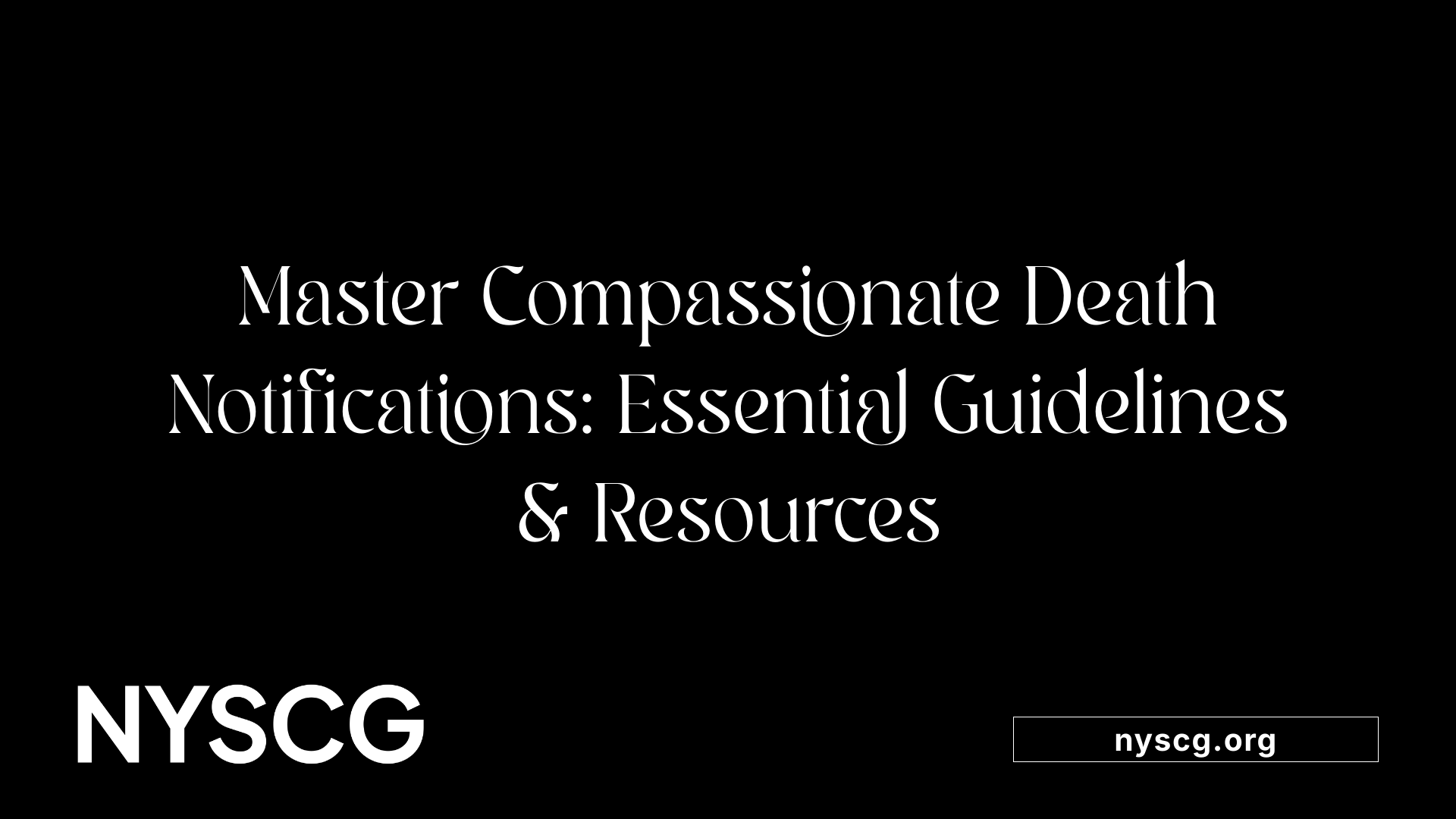
Providing death notifications is among the most delicate and significant tasks for spiritual care providers, including chaplains. To facilitate this process with compassion and competence, a variety of resources and guidelines have been developed.
Many organizations offer educational materials and training programs specifically designed to prepare chaplains and spiritual care professionals for these sensitive conversations. These programs emphasize the importance of cultural competence, ensuring that diverse beliefs, traditions, and individual preferences are respected and integrated into the notification process.
Communication protocols and assessment frameworks serve as essential tools. They help providers navigate the emotional landscape of grieving families, assess the emotional and spiritual needs of those affected, and deliver news with clarity, empathy, and dignity.
Professional standards and certification from organizations like the Association of Professional Chaplains also guide best practices. These standards emphasize ethical conduct, compassionate presence, and the importance of ongoing support.
Holistic spiritual assessment tools are incorporated into training and practice to evaluate the spiritual, emotional, and cultural needs of patients and families. These assessments inform tailored interventions and ensure that support resonates with individual beliefs and values.
Documentation practices are vital for maintaining accurate records of the notification process, ensuring continuity of care, and respecting privacy. Proper record-keeping also supports reflective practice and quality improvement.
In sum, resources like guidelines, training programs, and assessment tools enable spiritual care providers to deliver respectful and effective death notifications. These frameworks foster compassionate communication, uphold ethical standards, and support grieving families through one of life's most difficult moments.
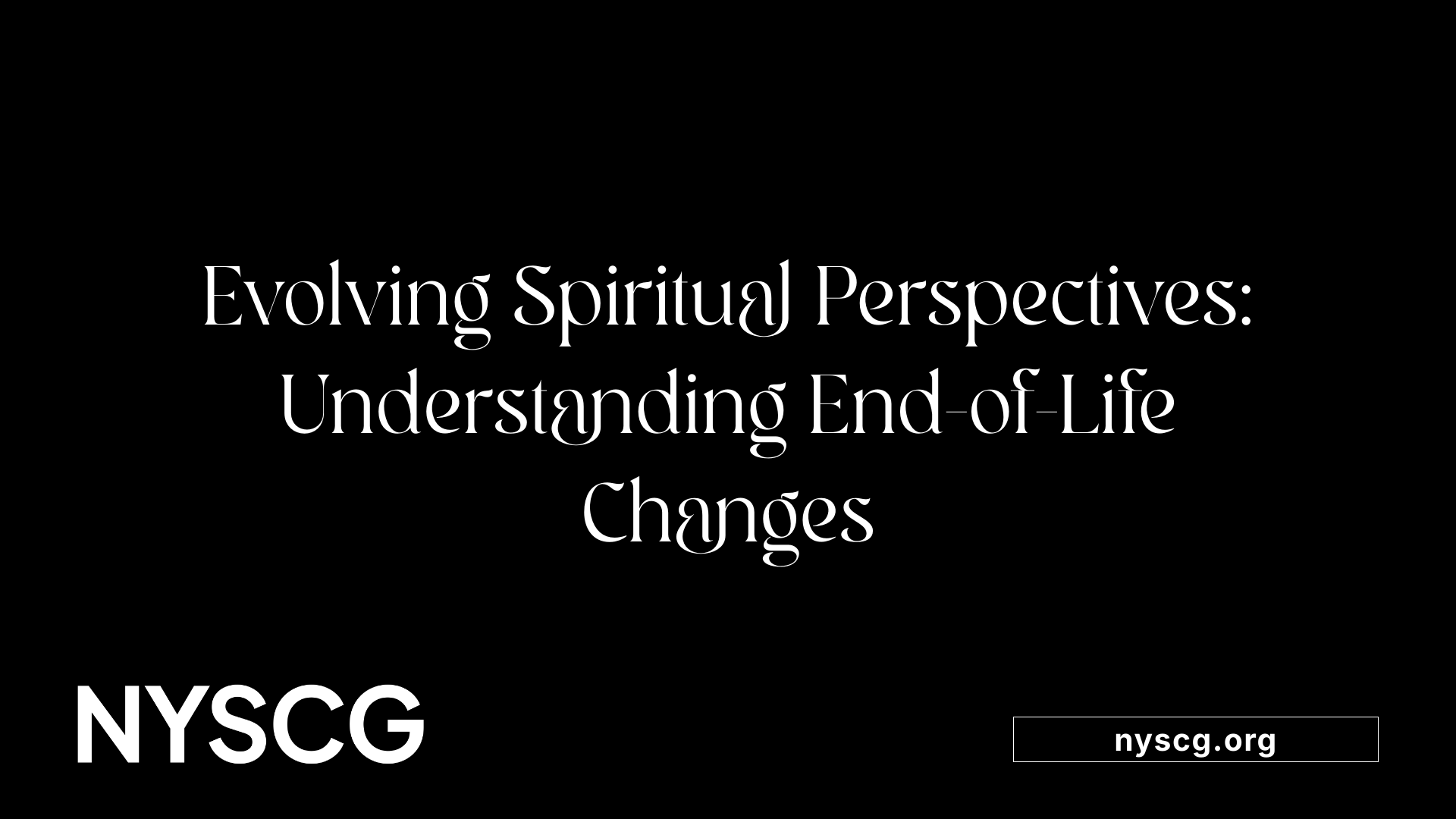
As patients near the end of life, their understanding and connection to their spirituality often deepen significantly. This phase prompts individuals to reflect more intensely on the meaning and purpose of their lives. They may seek comfort through prayer, meditation, or religious rituals, which serve as sources of hope, peace, and a sense of connection to something greater than themselves.
Many people experience a reevaluation of their beliefs, either strengthening their existing faith or exploring new spiritual perspectives. For some, this exploration involves revisiting past beliefs or embracing spiritual practices that they had not previously considered.
Engagement with spiritual care providers and loved ones plays a vital role in this process. These conversations help individuals articulate their fears, hopes, and beliefs, offering clarity and emotional support.
Overall, spiritual considerations become central to holistic care, helping patients address emotional and existential concerns. This inner journey often provides comfort, reduces anxiety, and fosters a sense of acceptance, supporting a peaceful transition in the final days.
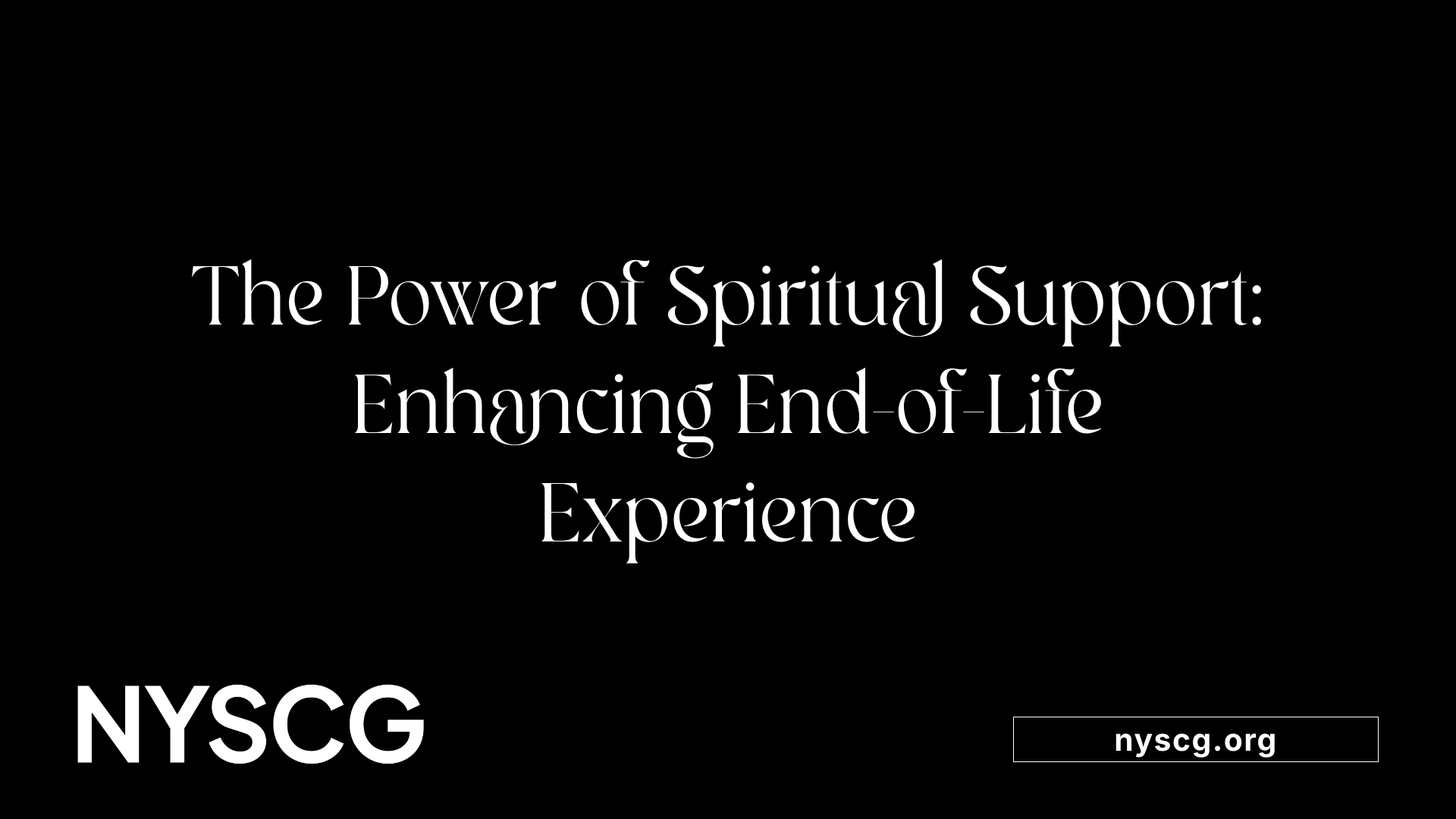
Spiritual care plays a crucial role in supporting patients during their final months by addressing deep-seated emotional and existential needs. As individuals approach death, they often face questions about life's meaning, their legacy, and what might happen after death.
These reflections can evoke feelings of fear, uncertainty, or spiritual distress—such as loneliness, regret, or a sense of disconnect. Compassionate spiritual support aims to alleviate these burdens, helping patients find peace, hope, and reconciliation.
Dying patients have several specific spiritual needs. They may seek connection through religious or personal rituals, explore their core beliefs and values, or look for forgiveness and reconciliation with themselves or others. Sharing life stories helps achieve closure and preserves their wisdom.
Chaplains or spiritual practitioners listen actively, validate feelings, and facilitate access to faith practices or rituals if desired. They may connect patients with clergy or spiritual leaders, or help create a sacred space for reflection or prayer.
Addressing these needs not only respects individual dignity but also enhances overall quality of life. It promotes emotional resilience, nurtures hope, and eases the transition from life to death, underscoring that spiritual care is a vital aspect of holistic end-of-life support.
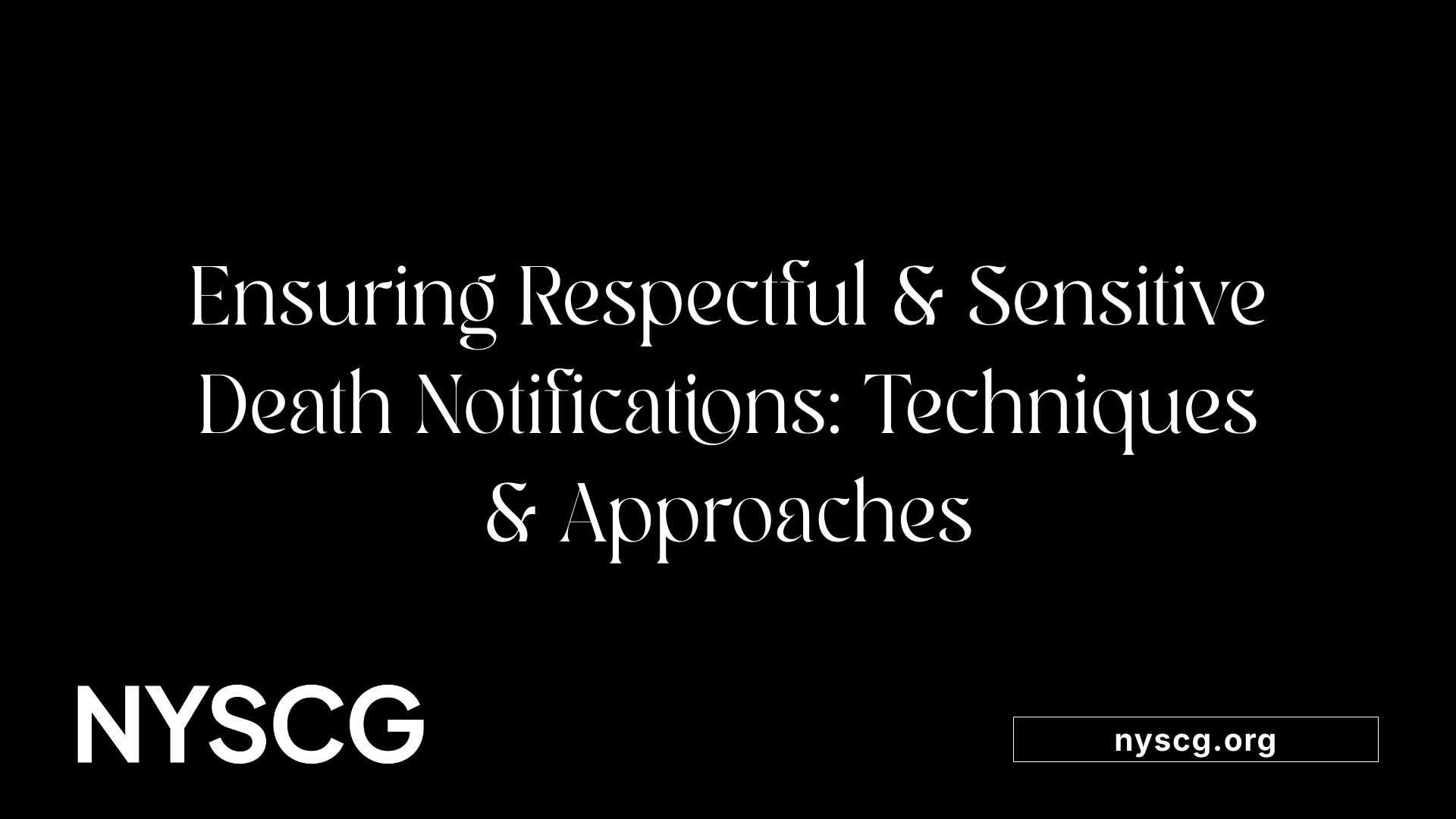
Communicating news of a patient’s death requires not just clarity and honesty but also a deep respect for the individual's spiritual and cultural background. Healthcare providers should approach these conversations with empathy, ensuring they create a safe and supportive environment for the patient and family.
Understanding and acknowledging personal beliefs are essential. Spiritual care professionals, such as chaplains, can be involved to provide guidance and support during these sensitive moments. Their presence helps to ensure that spiritual needs are considered and that rituals or practices important to the patient’s faith or personal spirituality are respected.
Timing and readiness are critical. Providers should assess whether the patient and family are emotionally prepared for the delivery of such news and choose a suitable moment that allows for meaningful conversation. Staff training in cultural competence and spiritual awareness is vital to navigating these complex interactions effectively.
It’s important to actively listen, validate feelings, and respond without judgment. Engaging the family and spiritual leaders when appropriate can also foster a sense of community and shared understanding. Tailored communication that respects linguistic and cultural differences further enhances trust.
In summary, a respectful and compassionate approach, supported by proper training and inclusion of spiritual support, helps uphold the dignity of the patient and eases the grieving process. This holistic method supports not just physical comfort but also emotional and spiritual peace during one of life's most challenging transitions.
AspectDescriptionSupporting ApproachCommunication StyleEmpathetic, honest, and clearActive listening, gentle tone, transparencyCultural and Religious BeliefsRespect and incorporate individual rituals and practicesInvolve chaplains, community religious leadersTiming and ReadinessSensitive assessment of emotional and spiritual preparationUse of spiritual history tools, observational cuesEmotional and Grief SupportFacilitate expression of feelings and support copingImmediate support, follow-up support groupsFollow-up and SupportContinued care for emotional and spiritual needsBereavement services, ongoing counseling
Ensuring that death notifications are handled with cultural and spiritual sensitivity not only honors the individual’s dignity but also supports their loved ones in their grieving journey, helping them find peace amid loss.
Effective navigation of patient death notifications as a spiritual care worker hinges on compassion, cultural competence, and holistic support. By combining best practices, comprehensive resources, and heartfelt presence, spiritual practitioners can greatly alleviate emotional and spiritual distress, fostering dignity and peace for patients and families during life’s final moments. Continuing education, interprofessional collaboration, and an unwavering commitment to respecting individual spiritual journeys are essential in providing meaningful end-of-life care that honors the human spirit.
All you need is the will to make the world a better place.
New York State chaplain group inc. is a tax deductible organization with a federal tax Id number 92-383-4921